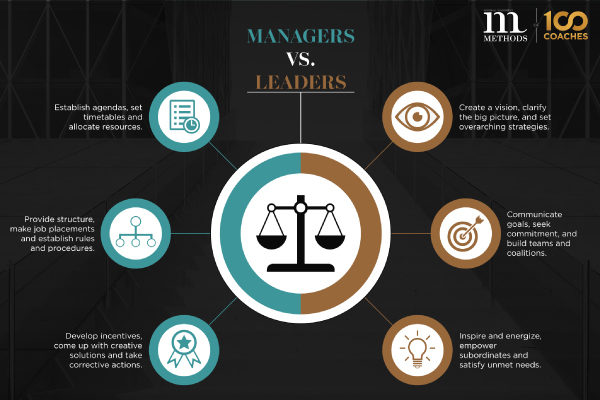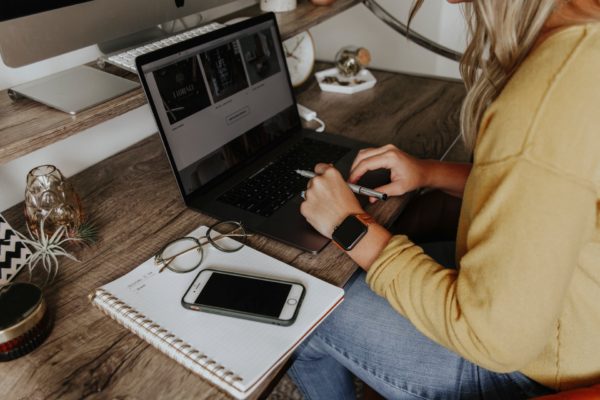Dr. Raj Raghunathan is one of the world’s leading experts on happiness in the workplace, and his infectious spirit makes that no surprise. He’s spent his career understanding the science behind happiness and how it relates to our productivity, sense of belonging, and overall output at work. We sat down with him to find out how to create moments of joy and happiness during such dark times.
- In what ways do things like the COVID pandemic open up opportunities for entrepreneurs and business owners?
Anytime there is a big seismic change like this it brings up as many opportunities as it does threats—that’s always the cliche, right? And one year, two year, three years from now, there are going to be a bunch of people who are potentially going to be billionaires and wouldn’t have been because of COVID. So the idea is to kind of look actively for doors of opportunity that open up, and in order for you to prepare yourself to be in that mind state, I think you need to think of this as, in some way, a blessing, rather than a curse. So it’s a mindset change and try and see ways in which you can grow and learn and become bigger and better out of this.
One of the things this has obviously opened up is online education. Many of us knew it was coming, but many of us were kind of resisting it, particularly in my age group and above, because we’re used to in-person, face-to-face. And now this has been thrust on us, and you can either have an attitude of trying to resist it, or you can embrace it. And those that embrace it, I think, are going to be the ones who are going to do well in the future. And I think that a similar analogy can be drawn for other industries
- Looking at the crisis through that growth mindset: What should we all be learning?
I think it is going to depend on the industry, but I think that a growth mindset and being receptive to things, and being energetic and optimistic is necessary during times like these. I think that this is a great opportunity for people to reconnect with what they’ve always wanted to do for a while and just didn’t get the time or the bandwidth to be able to do. And now that we’re not commuting as much, I do think that I’m speaking for most people in saying that they have a little more free time, (maybe an hour or two hours every day), that they would have spent on commuting or chatting up with people in the corridors and things like that. Use that time productively. And I think that that is going to depend on who you are and what kind of industry you belong to.
But I think that reconnecting with your family and with your hobbies, things that you’ve always wanted to do that you always were putting away putting off, because you were thinking that you don’t have the time now, is a great thing. For example, you could finally get started on building that home garden, or fixing the plumbing issue, and so on. Once you accomplish those things—small as they may seem—it gives you a sense of confidence, a sense of competence, and that then gives you the platform in order to do better in other domains as well. I think one thing that I would strongly recommend for people, regardless of their background and where they work, is to look at the online resources available to upscale yourself.
In general, I think your career can be divided into the two halves, right? The first half is what I call the “functional phase,” where you’re employing the things that you learned in school; you’re working basically in a kind of core, functional area. Maybe it’s software development if you’re in that field, maybe it’s accounting skills if you’re in that field. Maybe it’s script writing if you’re in the movie business, and so on. But the second half is where you are transitioning from the functional skills to kind of people skills, and more soft skills. And regardless of where you are in this career path, and particularly if are—you know, 10 or more years into your career—I think it’s very important to kind of upscale yourself on leadership and softer skills.
And there’s so many different resources available online nowadays; through Coursera, through TedX—many of them are even free. And so, use this time to upscale yourself in those domains. If you can also figure out what “working from home” means, (because I do think that it’s somewhat of a permanent shift), then you’ll be in a good place. Even if you go back to pre-COVID times (in terms of not having the pandemic, et cetera, weighing on us) I think that more people are going to choose to work from home unless it’s kind of important or necessary to meet in person. It’s just more convenient—let’s face it. You don’t have to commute, you don’t have to park and so on and so forth. It’s also less expensive. So, you gotta get comfortable with that.
And that might mean a variety of things, including, for example, being on top of ways in which technology is developing— knowing the different options that exist out there, and what the differences are between apps like Skype, Zoom, and Microsoft Teams, and so on. And think of online presentations, for example—I think it takes a different set of skills, you know? You have to be aware of certain things now. You have to make sure your camera angle is good, the lighting is flattering, you’re well-placed in the middle of the screen—and so on and so forth. I think that those kinds of skills will become increasingly important. For example, an entry level person that just got a degree, they need to be thinking about those things. Details like that are going to be very, very important in whether or not you come across as professional.
- So in accepting technology and change, and I should be looking at a different way to online present myself and also online learning. What other ways could I be looking at job sculpting in today’s marketplace?
I think for a while now, maybe the last 15 years, maybe even 20 years—but particularly in the last five years—I think your online persona and presence has become increasingly important. The trail that you leave behind across various social media outlets I think is super important. And obviously, you know, there is a cautionary side to it. You don’t want to be seen behaving unprofessionally, right. And if there are videos of you or pictures of you where you behaved unprofessionally, that can come to haunt you later on. So I think that you have to be careful about it, but I think that people don’t look at the positive side of things. If you leave behind a lot of material that is positive then I think that’ll be quite easy to retrieve and pick up by potential employers.
For example, I get a lot of people writing to me saying that, “Hey professor Raj, you do this great work on happiness, and I’m very interested in it. Can we please start a project?” or “can you tell me a little bit about what it would take for me to get into your PhD program?” And then I do a quick search on them online, and if they truly are really interested in the topic as they claim, if they’ve thought about it a lot and done work on it a lot, it’ll pop up. I have to ask: have they written a blog post on the topic or have they at least commented on somebody else’s blog posts? If I can’t see anything of the sort anywhere, chances are pretty high you’re just being opportunistic.
You’re just writing to me because you know that I work in this area and I have some level of disability and you’re trying to get to collaborate with me without really having any experience. You’re just trying to bluff your way into this. So, I think that you can use the fact that things that you put online are going to stay there relatively permanently. And that can be a good thing. And trying to think strategically about what are the sort of things that you want to put there so that you can build up a case for yourself. In book writing they have something called the “platform.”; basically, the idea is that they no longer look for authors with an interesting idea alone.
I mean, of course, you need to have an interesting idea—something that’s new and that you’re an expert on—but you also need to have a platform. And platform is the set of things that you put out there that other people find interesting; having a set of followers, having a website, having those kinds of things. So I think that we need to recognize that we have a second life, so to speak: online life. And it needs to be an extension of our real life. There needs to be harmony between the two. You can’t be one thing there, another thing here in terms of your values and so on. But the idea is to recognize that that online second life is, maybe in many ways, becoming the first life, right? Because that’s the persona that most people can access immediately without feeling like they’re intruding on your, on your real life, right? Because you put it out there or it’s available out there. And so just thinking strategically about what your end goals are and therefore how the second life or the second persona or the online persona can help you think strategically about it. And then working towards building that I think is a very, very important thing to do.
- Given the sustained stress of the last 9 months, and the fact that some of these changes might be permanent—what does that look like going forward? What does that do with anxiety and how does that impact our overall happiness and our contentment? What have you seen or what feedback have you gotten?
I have surveyed people from around the world asking them, “how has COVID affected you?” And one thing that consistently comes up in these surveys is that the stress levels have gone up. And this is not a big surprise, right? I mean, for most of us—I’d say about 70%—stress levels have gone up overall around the world. And the causes for these stress levels are various. For some people it’s job related, but at a more intensive level, the stress levels have gone up because of health related issues. Either for themselves or for somebody close to them.
And then there is another set who are just feeling alone, because of social distancing and stuff like that. And it’s mostly single people. And then there is a set of mostly women for whom they’re just feeling overwhelmed because they’re stretched thin, you know. They’re having to kind of juggle so many balls at the same time; taking care of kids, doing online courses at home and preparing meals for them while attending meetings and so on and so forth. So there’s a variety of causes of stress. And I would say that the most important cause of stress is really the uncertainty regarding the future. Okay. “How is this gonna unfold? How long is it going to last? Am I going to be relevant? What is going to happen to my job? What is going to happen to my pay?” Et cetera, those kinds of stresses. Obviously all those stresses mean that the happiness levels on average have come down. Having said that, though, I think that there’s also 15, 20% of the people for whom happiness levels have either gone up or stayed flat—but certainly there are pockets or areas in their life, which, which are actually much better now than they were before. We talked a little bit about this earlier—that many people are finding that they have a little more “time affluence,” as it’s called in the research, as opposed to “time scarcity,” now, because they’re working from home and they don’t need to commute. And we know from past research that commuting is one of the biggest causes of stress.
So that’s been kind of removed or at least mitigated. And the ones who do have to travel are dealing with less congestion on the roads. So I think the longterm kind of forecast is that until the uncertainty is resolved, one way or the other, the stress is going to continue to be high. And for the uncertainty to really be resolved, I do think that the economy as a whole need to be doing well; back to where it was—maybe even better than where it was—and so on. And for that to happen, I think that either a solution needs to be found for the disease so that people feel safe enough to open up again, or we find alternative business models; where people generally tend to work from home using technology, internet and stuff like that.
And I don’t know what’s going to happen in the future. Obviously I don’t have a crystal ball. But I do, I think that we are in general as a species innovative enough, and if the pandemic had to strike, I think it struck at a good time, in a sense, because, you know, at least we have these online platforms and avenues for us to connect with each other and continue to do that business. And so I don’t have any doubt that maybe it’ll take a couple of years, right. Rather than just a couple of months, but it’ll get resolved one way or the other, the uncertainty. And maybe there’ll be a little bit of a dip in the depression and the economy before it, it picks up again. But I do feel optimistic that things are going to resolve themselves.
And the idea is that—do the things that you need to do right now in order to set yourself up like a solid, solid foundation of wellbeing under your feet. Develop the hobby that, or reconnect with a hobby that you’ve not, really kind of pursued for a while. Nurture your family and friendships, especially family right now, you’re at least be able to be face to face with them. So there are many ways to do it, but you know, one, one important way is to have common activities so that you build common memories together. Especially if you have teenage children, there’s a good chance that they’re often their own rooms on technology anyways. This is kind of on steroids now. Even in the past life, they used to be on WhatsApp and social media, Snapchat, et cetera, for four or five hours a day—now it’s probably more. So you need to reel them in to your orbit and share some in-person, face-to-face activities; play some board games, maybe even watch a movie—but do it together. And just stay disciplined. I mean, that’s so important because you’re at home. It’s very easy to just say “I leave whenever I want to, and I’ll go to sleep whenever I want to,” and so on and so forth. That rigid kind of, “I had to get out of the house at 8:00 AM so that I could be in the office by 8:20” or whatever—that’s kind of gone now. So it’s more difficult to stay disciplined, but I think it’s even more important to stay disciplined. Otherwise, things can quickly unravel and get out of hand.
And part of the discipline is to lead a healthy lifestyle. I think that this can’t be overemphasized. You need to get a good six, seven hours of sleep every night, and you need to eat relatively healthy stuff. One good thing is that we are all cooking at home for the most part. You know, some of us are ordering in, but cooking at home and almost any home cooked meal is better than almost any meal that you buy outside. So that’s a good thing. But I think on the negative side, we are not getting as much exercise. As it is, Americans used to walk very little. I think there was some statistic that on average, about 4,000 steps a day. Which is nowhere near what is required. And now it might’ve even reduced further because we don’t ever step outside the homes.
And so very important to kind of find the time, maybe use those at least half an hour of those one or two hours that are more free now to walk. So basically if you don’t do anything about it proactively, I think the stress levels are going to continue to be pretty high for the next two years. But I think that you need to be proactive about it and wrest control over the situation and put in place a certain set of activities and a regimen that will give you a solid foundation of wellbeing. And regardless of what happens over the next few months and couple of years, you at least have a solid foundation to build off of.
- There’s a study out there that’s actually saying that one thing that’s increased throughout the pandemic is peoples’ sense of hope. Can you speak to hope as a coping mechanism?
In my very first online course on happiness, I interviewed one of the stalwarts of this area of research on happiness. Her name is Sonja Lyubomirsky, and she’s got a couple of books and she’s very well researched and stuff. She called gratitude a “meta strategy” for happiness, meaning that it’s a strategy that checks off so many other strategies. So just by practicing gratitude, you’re actually practicing a lot of other strategies for wellbeing.
One way in which gratitude is helpful is that it’s a socially binding kind of practice. You usually are grateful when something good happens for which you weren’t necessarily the only cause, or you didn’t have any role to play in that positive thing happening to you. Right? I mean, somebody cooks a nice meal and gives you that meal. Or you get a bonus check in the mail or whatever. When you feel grateful, what you’re doing is attributing the cause of the positive outcome to external parties rather than to yourself. When you take personal credit for good outcomes you tend to experience what’s called “pride.” But when you give credit to other people, you experience gratefulness as a natural consequence of crediting other people or the external world—”it could be luck, it could be God”—for a positive outcome.
What you’re doing is that you’re beaming to the external parties. You’re kind of like sending out positive vibes towards them. And people pick that up. If you’re grateful, people can see that. And particularly for a specific person, of course, they can sense it. I mean, you pick up the phone and talk to them. There’s a warmth in your voice. Even if you don’t vocally say that you’re grateful to them. And the thing about human beings is that we are very fair, right? We want to be what Adam Grant calls “matches.” Somebody does a good thing; we want to do good things in return to them. And so when somebody is grateful, when you’re talking to them, when you’re grateful, when you talk to somebody, they want to now return the favor to you, because they can sense you being grateful to them.
And so they want to say positive things about you. It becomes a bit of a virtuous loop, in terms of relationships. And that’s why it’s called a binding experience or practice. Gratitude also takes you away from pride towards a non-egotistical emotion. There’s a saying in English, “pride comes before a fall.” So if you feel proud, chances are that it’s not going to last very long. In fact, you’re going to know, sooner or later experience the negative emotion—you’re going to fall basically. But with gratitude that doesn’t happen. It tends to build on itself. The reason is that when you’re attributing your success to external things and not kind of patting yourself on the back, when a failure happens, you don’t blame yourself either.
If you took credit for the successes, then subconsciously you, at some level, realize that you’re attributing success to yourself. And therefore when you fail, you have no option but to attribute the failure to yourself. But if you’re attributing other people to your success, then chances are, you’re not going to be as negatively affected by failures. Gratitude also tends to make you actually kind of experience pleasure at a more intense There’s this habit of saying grace before you eat in the Christian practice, which I really love, and what some of the research shows is that (particularly for items that are sweet in taste) the pleasure that you get from eating actually goes up when you express gratitude.
So there’s a variety of ways in which gratitude helps you.
And that’s why Sonja Lyubomirsky calls it a “meta strategy.” The fact that gratefulness has gone up—I mean, it’s certainly true for me: just having the sense of greater time affluence, having more time with family. I can’t tell you how happy I am to kind of have it as a set routine. Whereas in the past, there’d be a lot of stress just dealing with the uncertainty of whether I’m going to be able to get to the office on time for a meeting. And just the amount of traveling I was doing around the world, it was just insane. And now I’m “forced” to do this, and at some level I feel like I wish that I had proactively chosen to do this. And that’s one thing that I think in my life is going to change; I’m going to be saying “no” to more things that involve time away from my family.
- Lots of people are processing loss and grief during this time period. And how do you do that from a positive mindset? How can you coexist with happiness and gratitude while also letting grief or loss pass through?
You can’t ignore grief, that’s for sure. A lot of us are experiencing loss in different areas. It’s about accepting it and moving forward.
This idea of “how do you cope with the loss?” The short of it is that traumatic events and loss tends to teach us a lot. If you think back to negative events from your past, chances are, when you look back on it you obviously wouldn’t want them to happen to you again, or you wouldn’t want to have them happen to anybody else, but chances are you recognize that those negative events were the ones that made you who you are right now.
Overcoming those negative events may have made you more skilled or more compassionate, more able in some way, or deeper, richer, more complex—but in a good way. And that’s what we find in the research: when we ask people to think back on positive experiences and negative experiences, and we ask them, “which of these experiences taught you more about life?” It is the negative ones that tend to teach us more. So when a negative happens right now, for example, loss of a job or loss of a friend or a family member, it seems totally meaningless. And, you might even feel it happened in a way that you didn’t deserve it; that it was just bad luck.
And you might even blame—if you believe in a God—God, or the external circumstances. While it’s going on, it’s intense, but what we discovered in our research is that about two years need to pass for a really traumatic event for you to look back on it as a learning experience. And it’s very interesting what happens in those two years. And this area of research is called “post traumatic growth.” We are aware of something called PTSD,” right: post traumatic stress disorder. Unfortunately, at some level, it hogs the limelight; everybody knows about it. But the truth is, out of a hundred people that go through a traumatic event only about 20% or 30% of them experienced PTSD.
And 20% or 30% is a lot, but PTG—post traumatic growth—is experienced by 80%. And the manifestation of the posttraumatic growth out of that—your relationships are more deep and meaningful and sincere. You identify a few sets of people with whom you develop, after a traumatic event, a deeper sense of connection. You become more spiritual in your attitude, so you’re more forgiving of other people. You sense that there’s a larger intelligence that’s playing at play and you don’t tend to control things as much. We talked a little bit about this idea of embracing rather than resisting—you know—you become like that. You start to enjoy ordinary everyday events more after a traumatic event, when you have the post traumatic growth. So just sipping a cup of tea in the morning, all by yourself, in silence, watching a sunrise or something like that, or, you know, seeing a new you sapling shoot up in your backyard or you’ve got a new flower—those kinds of things give you joy.
You don’t necessarily have to vacation at Lake Como and run into George Clooney for you to feel like you’re having a good time. You start to enjoy the ordinary things.
So there’s many different ways in which those who have experienced PTG also find more purpose in life. They identify what it is that they were put on earth for, and the single thing that they want to really focus and dedicate the rest of their life to, and so on. So there are a variety of ways in which we tend to find meaning from negative experiences. And the idea is if that is true for negative events that happened in the past, then why can’t it be true for the negative events that you’re experiencing right now? You know, I’m not saying that these negative events are justified, or that it’s good that they happen. But the fact is they’re happening or they’ve already happened. So the question is, how do you kind of become resilient from those and be the best person you can be given what’s happened.
And to do that, to answer that question, all you have to do is look towards your past negative experiences. Hopefully you haven’t experienced too much trauma, but if you have experienced traumatic events or at least intensely negative events, think back to how you look upon them now, and chances are, you’re going to think of them as not being as negative anymore. Partly because you’ve learned from them and you’ve grown from them. And if that is true for those past events, chances are that you’re also going to learn and grow from these current negative events. This is not to trivialize the emotions that come out of distress, et cetera, but it’s just the way the world is. You know, it’s mysterious, it’s beautiful, it’s deep, it’s painful, it’s all of these together. And the idea is to kind of, you know, not run away from it—accept it– but also find ways in which you can kind of become more resilient and become stronger and grow stronger as a result of these experiences rather than wallowing in self pity and misery. And, for sure, not going into doing negative things like coping with self medication or drugs and so on. And so
Raj’s new Methods content on Mastery at Work is now available. Find out more about Dr. Raj’s courses here





